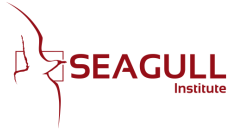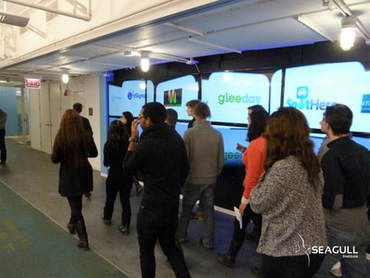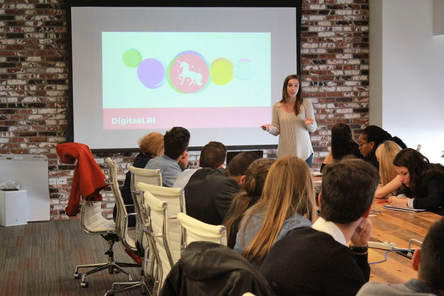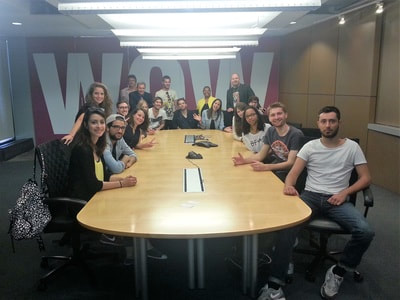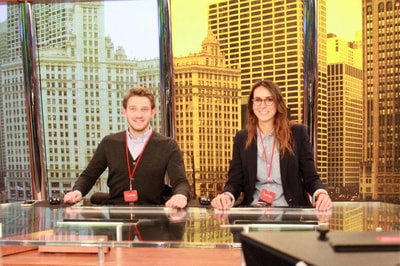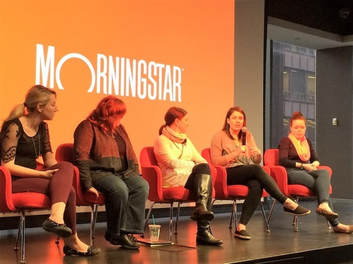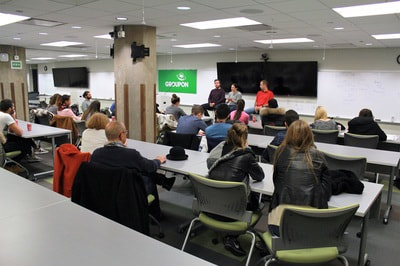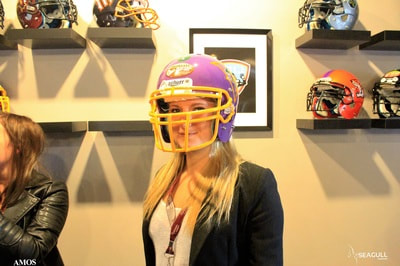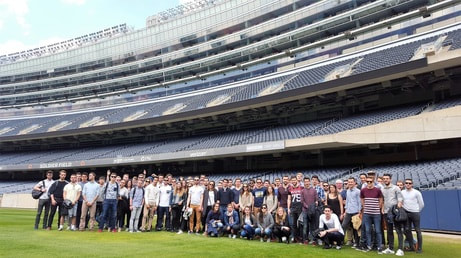What is Seagull Institute?
|
Seagull Institute is an international education company that specializes in bringing French graduate students to Chicago to participate in professional and academic programming. As part of the Seagull experience, students participate in academic lectures from professors at Universities such as Loyola, DePaul, Columbia, and industry experts; attend 3-5 company visits at prestigious midwestern companies; prepare a 20 minute capstone industry analysis presentation before a jury; and discover Chicago's rich culture through a variety of tourism activities.
Seagull Institute has had success in planning and facilitating academic programs in the following industries:
What to Expect During a Company VisitFrom start ups to global corporate headquarters and everything in between, Seagull Institute creates customized company visits for each University to target students interests and open their eyes to the workings of American companies. These visits are organized based on the field of study and career aspirations of your students. This will be the opportunity for students to ask all of their questions and, most importantly, to discover the professional atmosphere and culture as well as the business practices that differ form those of France.
Our company visits are typically about two hours long and include a tour of the offices followed by a Question and Answer session with real world professionals, executives, and leaders of today. Students have the opportunity to discover different types of work environments and learn from industry leaders. |
Company Tour
The company tour usually lasts about 15-30 minutes and is in integral part of the student experience during a company visit. Each year, we receive feedback that the company tour is the students' favorite activities during the stay in Chicago. During this portion, feel free to highlight areas of your office or business that are unique and elaborate on the company culture.
Industry Insights Presentation
|
The industry insights presentation tends to be the portion of the company visit that takes the most time. During an industry insights presentation, companies often prepare a slideshow that details company background, examples of work, competitive analysis, new product development, department descriptions, or a short recruitment presentation. This portion of the visit is completely up to the discretion of the company. Keep in mind that Seagull students are 50-100% finished with a graduate degree in the selected industry. Even though English is not their first language, they are very up to date on vocabulary and best practices.
|
Q & A Session
Seagull students are respectful, curious, and engaging. We've historically had great success with Q & A sessions with senior leadership and department heads. This portion usually lasts 20-30 minutes. Seagull students are interested in learning more about your company but also about how the industry is conducted in the United States.
Cultural Differences
Speak Slowly
All of the students who will be participating in your class know English. With that said, the levels of competency will vary. As a result, we encourage all presenters to speak loud, clear, and slowly. Get in the habit of rewording complex ideas or sentence constructions. In fact, you may have to often repeat even simple ideas or sentences during your lecture.
French Students are Notoriously Quiet in Class.
Please do not take offense to this, as it is no disrespect to you and your company. The students are accustomed to a straight lecture format where there is far less engagement than in an American classroom. In fact, in France, students customarily do not ask many questions in class as it is perceived as a sign of doubt or uncertainty towards the presenter. This does not mean that we discourage our lecturers from engaging with the students. We encourage you to try to break the students from their shell and get them acclimated to the U.S. setting.
Are Blank Stares Common?
Many of our teachers and presenters have mentioned to us over the years that they were surprised by the fact that students would not look into their eyes as much as American students would. This is just a cultural difference.
American Idioms and Slang
If you tend to use idiomatic language like so many of us do, please note that chances are, the students will not comprehend. This was made clear early on, circa 2013 when we stated to a group of students who were approaching the last few days of their time here in Chicago, that we “wished them the best of luck, and encouraged them to “break a leg”.” The looks of bewilderment were spread across each of their faces.
All of the students who will be participating in your class know English. With that said, the levels of competency will vary. As a result, we encourage all presenters to speak loud, clear, and slowly. Get in the habit of rewording complex ideas or sentence constructions. In fact, you may have to often repeat even simple ideas or sentences during your lecture.
French Students are Notoriously Quiet in Class.
Please do not take offense to this, as it is no disrespect to you and your company. The students are accustomed to a straight lecture format where there is far less engagement than in an American classroom. In fact, in France, students customarily do not ask many questions in class as it is perceived as a sign of doubt or uncertainty towards the presenter. This does not mean that we discourage our lecturers from engaging with the students. We encourage you to try to break the students from their shell and get them acclimated to the U.S. setting.
Are Blank Stares Common?
Many of our teachers and presenters have mentioned to us over the years that they were surprised by the fact that students would not look into their eyes as much as American students would. This is just a cultural difference.
American Idioms and Slang
If you tend to use idiomatic language like so many of us do, please note that chances are, the students will not comprehend. This was made clear early on, circa 2013 when we stated to a group of students who were approaching the last few days of their time here in Chicago, that we “wished them the best of luck, and encouraged them to “break a leg”.” The looks of bewilderment were spread across each of their faces.
